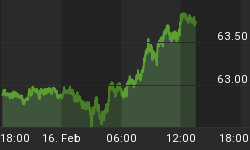The US government is taking a $25 million equity stake in Dublin-based battery metals miner TechMet, as part of a push by President Donald Trump to reduce the country’s reliance on supply chains dominated by China.
The backing from the $60 billion US International Development Finance Corporation (DFC) will help TechMet develop a nickel and cobalt mine in Brazil. Both metals are key in the production of the batteries that power electric cars and cell phones.
TechMet’s Brazilian Nickel project, in the north-eastern state of Piauí, is estimated to hold as much as 72 million tonnes of ore containing 1% nickel and 0.05% cobalt.
“Investments in critical materials for advanced technology support development and advance US foreign policy,” Adam Boehler, chief executive officer of the government agency, said in a statement.
The move follows last week’s executive order declaring a “state of emergency” in the US mining industry. The directive, which seeks pushing a local battery metals industry forward, also called for a report evaluating possible measures such as tariffs, quotas, or other trade restrictions targeting China and “other non-market foreign adversaries.”
Washington has expressed concern that China’s control of rare earths supply could be used as a tactic against US companies that depend on those elements.
Breaking China’s hold
China produces roughly two thirds of the world’s lithium-ion batteries and has taken steps to secure critical metals for them, particularly in Africa and Latin America.
The US is trying to fight back, with the Pentagon promising to fund domestic mining of the essential materials, while also investing in projects abroad.
Washington has also created the DFC to provide an alternative to Chinese overseas finance in Asia, Africa and Latin America.
The backing to TechMet marks the first time the US government has invested directly in a metals and mining company, the company’s chief executive, Brian Menell, said.
TechMet was founded in 2017 by South African mining veteran Brian Menell, a former executive at Anglovaal and De Beers.
The company has a tin and tungsten mine in Rwanda, a rare earths mine in Burundi, and a lithium-ion battery project in Canada. It also produces vanadium, a crucial metal for manufacturing nuclear reactors and military aircraft.
The US is not alone in its quest to reduce reliance on foreign producers. In September, the European Union stepped up its efforts to become less dependent on imported raw materials, including rare earths and, for the first time, lithium.
By Mining.com

















